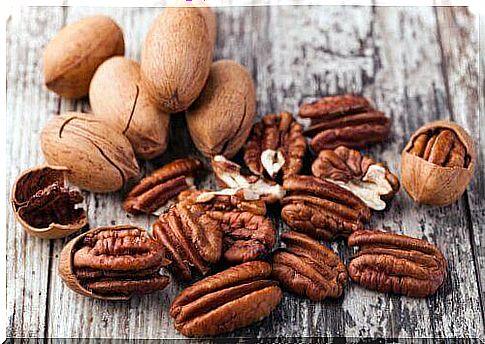How Should You Improve Your Diet If You Are Diabetic?
Are you diabetic and want to modify your diet to avoid health problems? Discover here the best tips to properly control and manage this pathology. Put them into practice as soon as possible.

To keep glucose levels under control, it is essential that you verify eating habits and modify them if necessary. In this article, we will tell you how you can improve your diet if you are diabetic. Do not miss it!
Remember that diet is a tool that improves diabetes management. If it is not adequate, complications may occur that determine the progression and severity of the disease. For this reason we advise you to pay special attention to the foods that make up your nutritional guideline.
How to improve your diet if you are diabetic
Always choose foods of high nutritional value and quality, and do not eat in abundance. Remember that to keep glucose under control it is preferable to eat small portions. Another recommendation? Try to organize your meals, that is, to keep food intake schedules to avoid spikes in blood sugar.
In general, dietary modifications for people with diabetes focus on the need to eat healthy foods that meet nutritional needs, while maintaining an adequate weight and a controlled level of triglycerides and cholesterol. Let’s look at some ideas below.
Diet Tips for Diabetics
Modifying eating habits and adapting them to your condition is essential to guarantee a good quality of life. Eating well, without excess calories or quantities, will optimize the production and use of insulin, precisely the main problem caused by diabetes.
Of course, before modifying your diet, approach your doctor and ask him what foods you should incorporate or remove from the usual menu. No one better than him will be able to advise you.
1. Moderate the consumption of foods that are transformed into sugars

Did you know that sweets are not the only foods that can spike glucose? Simple carbohydrates trigger glucose values, since they are converted into this substance when absorbed by the body. In fact, there is scientific evidence that reducing sugar intake improves diabetes control.
This does not mean that you should avoid carbohydrates but that you should know how to choose complex carbohydrates, which are released progressively and allow better control of blood glucose.
2. Eat protein
In general, foods rich in protein do not tend to increase blood glucose levels. For this reason, its daily intake is usually recommended, always following the appropriate portions for age, height and weight.
A 2014 study concluded that a high-protein breakfast could provide metabolic benefits for people with type 2 diabetes. Check with your doctor about it.
3. Choose slow-absorbing carbohydrates
Complex carbohydrates are absorbed slowly, that is, the rise in glucose levels occurs more gradually, thus avoiding the dangerous peaks for diabetics. Eat whole grain potatoes, pasta and rice, whole wheat bread, and legumes.
4. Watch your fat intake

The reality is that there is no conclusive information regarding the recommended fat intake in the case of diabetes. There are several studies with different conclusions. Although there is no single criterion, we could say that:
- You should choose foods with “good” fats over those with saturated fats. For example, an avocado on a chorizo or olive oil instead of butter.
It is necessary to avoid the ingestion of trans fats, according to a publication in the journal Diabetes & Metabolic Syndrome . Consumption of these lipids is associated with poorer glycemic control.
5. Avoid juices
He always prefers to eat a piece of fruit to drink a juice. Although an orange and an orange juice made with a piece of fruit have the same amount of sugar, the sugar in the juice is absorbed more quickly, which can cause a too steep rise in glucose.
6. Eat nuts

A study published in February 2019 in Circulation Research analyzed more than 16,000 people with type 2 diabetes. The conclusion of this research was that regular consumption of almonds, pistachios and walnuts would help reduce the risk of cardiovascular disease in adults with diabetes. of type 2.
It is estimated that those who eat at least five servings of nuts per week are 17% less likely to develop cardiovascular disease than those who eat only a couple of servings per week.
7. Eat cinnamon
The data in this regard are contradictory. While some studies argue that consuming cinnamon on a regular basis could help lower blood glucose in those with type 2 diabetes, others point out that there have been no variations in the people studied. Before modifying your diet to include cinnamon, check with your doctor.
Optimize your diet to manage diabetes
Improving your diet if you are diabetic is the first step in controlling the disease. Of course, you should not make any kind of radical change in habits without consulting a specialist. As we always tell you: no one better than your doctor will be able to advise you on the basis of your nutritional needs and your physical condition.









